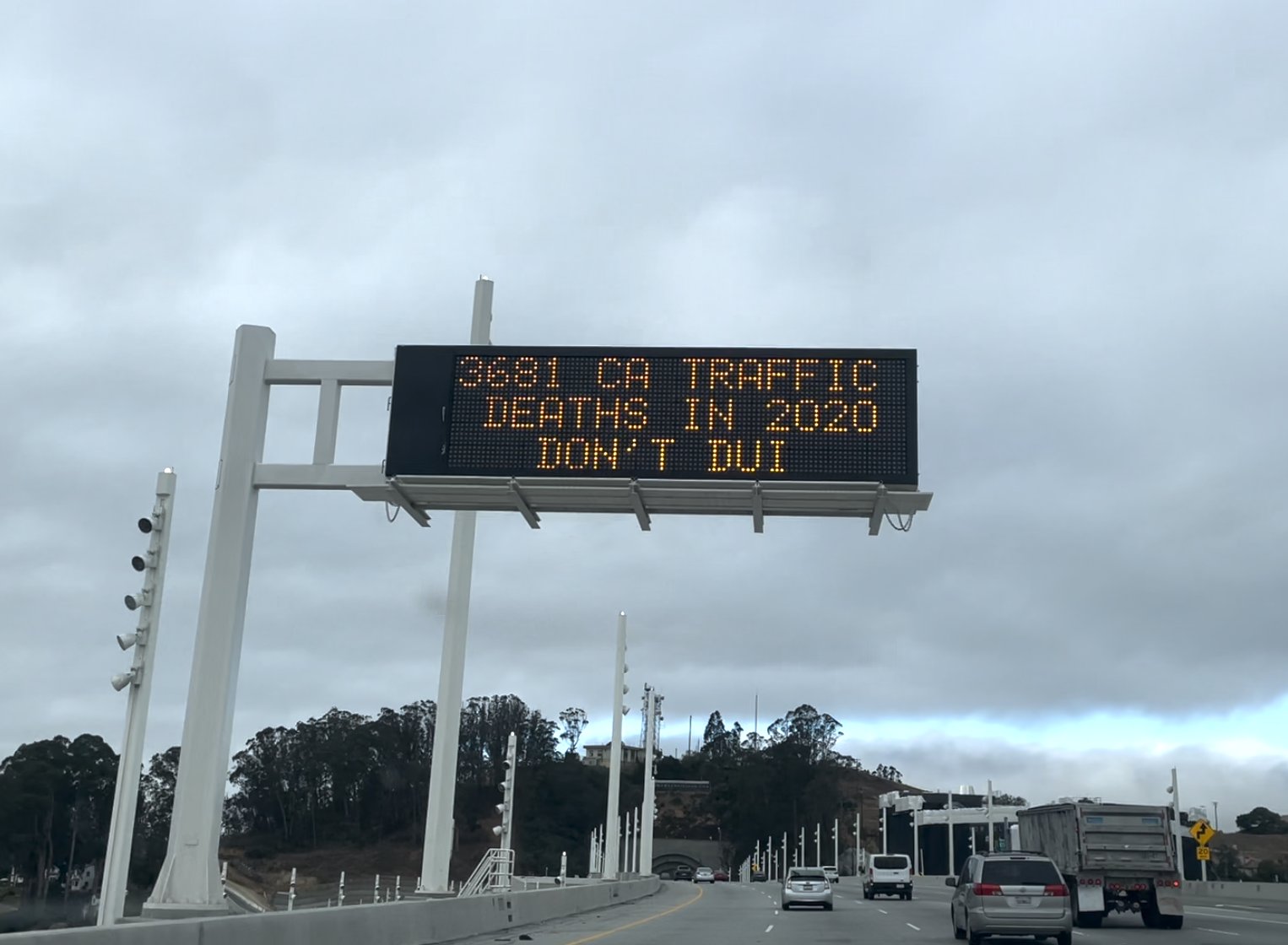I was driving on the freeway and I saw this sign:

As I drove I did some quick math. That is about ten deaths per day. How many people are dying of Covid in California these days? Turns out the 7-day average for Covid deaths in the state is about 20 still. However, my guess is that most if not all of those people are unvaccinated. As someone fully vaccinated with Pfizer, I should not be worrying about Covid at all. If I was not wearing a mask in February of 2020, I should not be wearing one now. However I still wear a mask sometimes, even though there is little to gain from it from a rational perspective. So do most people in the Bay Area.
This made me wonder: why do I feel uncomfortable without a mask while shopping at the Home Depot? It is definitely not rational. If the Covid rates start going back up it may be justified again, but right now it is not. My hypothesis is that my brain is tuned to pay attention to what has been proven to be dangerous recently, as opposed to what is probabilistically dangerous now. As a Behavioral Economics aficionado, I try to live life more rationally and be less affected by random cognitive biases. For example, I minimize riding a bike in the San Francisco Bay Area. Why? Because the risk of death while riding a bike is 10x as large as when driving. So when I see someone riding a bike in San Francisco while wearing a mask in July of 2021, something does not feel right.
At this point you may ask yourself, how and when should I adjust my dial of fear (or risk / benefit, really). I do not really have much advice to offer, but I can share some of the things I have done. Maybe someone will find them useful.
- Identify the riskiest things I do, and assess whether I believe they are worth it. I really enjoy rock climbing, but I rarely climb with a rope. I mostly stick to bouldering, which is a relatively safe version of rock climbing. Probably the most dangerous part of bouldering is the drive to the locations I like to go. I am aware of this risk, and I am fine with it. I can mitigate the risk of driving by having a relatively safe car, not being in a hurry, plan to stop often. On the other hand, I used to spend a lot of time inside coffee shops prior to Covid. I would catch respiratory viruses pretty often back then, and I have not had a cold since 2019. As a consequence, I plan to limit my time in packed spaces with little ventilation in the future. Catching a cold is not life-threatening, but grabbing coffee to go is not a huge sacrifice. I can often sit outside in the Bay Area, or at worst have it in my car.
- Disregard tragic events in the news. There are countless books on this topic, I recommend Factfulness by Hans Rosling in particular. The basic idea is that what is newsworthy is often very unusual, and seeing something in the news may distort our perception of risk. For example, A few days ago a building collapsed in Miami resulting in the deaths of over one hundred people. One may be tempted to fear high-rise buildings. However, it is important to remember that all but one high-rise buildings in the United States have not collapsed. As awful as this accident was, there is nothing for me to change about my lifestyle. I am not going to stop going into buildings.
- Know the most important personal risks for you. I like this chart, and I keep referencing it:

My case seems to be fairly typical. Two of my grandparents died of heart disease, one died of cancer, one in a traffic accident. I am very likely to die like 80% of all humans. I can do is try to postpone it by leading a healthy lifestyle (food, exercise, driving carefully). I know I have been paying too much attention to Covid as a personal risk in recent times, but I am human and that is ok.
I could make this post very long, but instead I will end it with one last recommendation: when it comes to making important decisions, we humans are not great. I believe it is worth spending effort learning how to be better at these. That is a large part of what behavioral economics is about. In particular, Noise by Daniel Kahneman is fresh in my memory because it came out recently. I believe everyone should be familiar with the concepts in this book. Armed with these tools, dealing with unreasonable fears becomes easier:
- is this bad thing reasonably likely to happen?
- if yes, are there any decisions I need to make in order to minimize the risk and / or reduce the impact?
- do I have decent information to make a good, relatively noise-free decision?
I know this sounds easy in writing, and in practice it takes effort. However, this is the best way I know to be at peace with the uncertainty of the future.